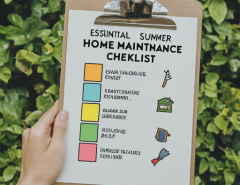When mold sets up shop in your home, it won’t only be compromising the physical structure but your health too. It is common knowledge that mold likes to grow in moist environments and can be in your home in as little as under 24 hours when there is water damage. Mold can be found on the food, carpet, wood, and just about anywhere in the house. The key to controlling mold is avoiding moisture at your home and addressing water damage restoration service on time. It is also important to identify the signs of having mold and in this article, we’re going to highlight some of them.
First Evidences Of Mold Occurring In Your House
Neglecting some first signs of mold in your house can lead to devastating consequences. People often take no notice of them due to unawareness, so we decided to gather all the important signs that will help you start fighting the problems at an early stage, thereby securing you and your family from undesired outcomes.
Water Damage
This perhaps the main sign of water damage in your home. Mold and moisture go hand in hand and without it, it can’t grow. When you experience water damage in your home, it is crucial that you’re acting fast so that you mitigate the chances of mold growth. The mold inspection and testing should be done by a professional and should never be a DIY job given how complex it can get. The first thing you’ll want to do is to get to the source of the water damage. This is because any remediation attempts will be futile if the source of water damage is not identified. When left unchecked, mold can grow really quickly.
Liquid Leaks
Always be aware of the leaks that you might be having in the home. There is no doubt that leaky faucets can be annoying but they also have the potential of causing a lot more harm. When left unattended, you could be facing mold and mildew growth. Mold will spread from the source to the air conditioning system therefore compromising the quality of air in the home. The plumbing system in the home is susceptible to leaks and should be inspected regularly to avoid problems down the line.
Level Of Humidity
Humid conditions provide the perfect climate for mold to grow. According to experts, indoor humidity should be kept below 60%. In addition to that, low humidity can also discourage the infestation of pests. One of the easiest ways of avoiding issues with humidity is by making sure that there are proper ventilation systems in place. The air ducts should also be kept clean to avoid blockages. You can invest in a portable humidifier for rooms that are not properly ventilated to avoid the buildup of moisture.
Strange Odor
This is also one of the signs that inspectors will look for if they suspect there is mold in your home or commercial complex. If there is a persistent musty odor in your home even after several attempts of cleaning, the problem could be the presence of mold. There is no denying that homes have their own distinct smells but it will be easy to know the difference when it comes to mold. Where there is a moldy or musty smell, it is a sign that something is amiss and that you should be getting in touch with mold remediation experts.
Visible Mold
This is one of the signs that will be hard to ignore as it will be visible. If you can see mold, you definitely have a problem, and getting in touch with an expert is mandatory. It could be a tiny area but it only takes a few days for it to spread to the rest of the house or building. When you see mold in your home, it will be time to call an expert.
Allergies and Other Health Issues
If you or other family members start experiencing health complications, the presence of mold shouldn’t be ruled out. Some of the common symptoms will include:
- Cough
- Throat irritation
- Nasal and Sinus congestion
- Respiratory problems
- Sneezing
Getting the Right Mold Inspector
Did you know that there are over 100,000 species of mold? As much as the majority of them are not dangerous, it is still important that you’re getting in touch with a mold remediation expert immediately if you’ve encountered a mold problem. There are those that are tricky to detect and will be hard to get rid of. To be on the safe side, you’d want to work with an inspector that is experienced. You can know more about the experience of the contractor by looking at the number of years that they’ve been operational. Don’t be afraid to ask for references if something is not clear. A company with nothing to hide will be more than happy to provide references. It is also advisable that you’re working with a local company for better accountability and service delivery.





Leave a Reply
You must be logged in to post a comment.